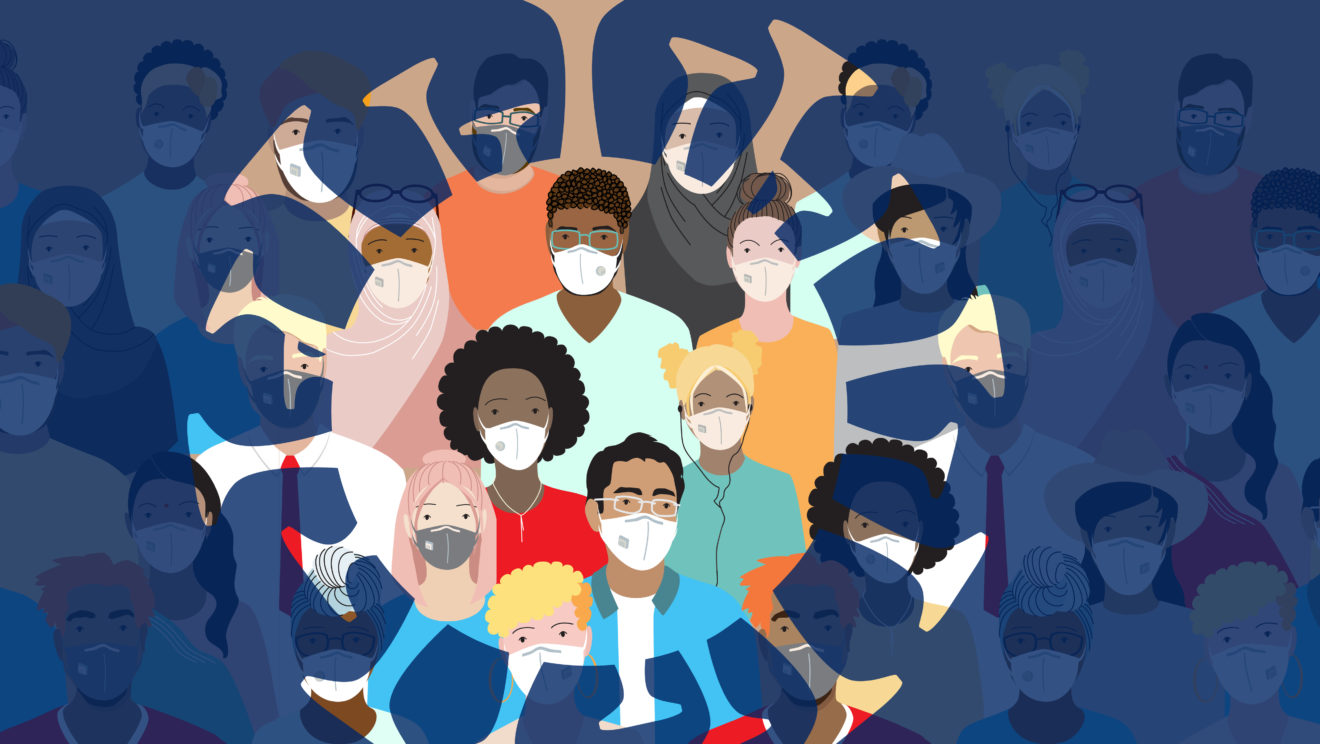Graduate Student Mental Health during the COVID-19 Pandemic

The COVID-19 pandemic has created new realities for the entire world. In an effort to support graduate students during this time, The Global Alliance for Behavioral Health and Social Justice invited graduate students via email to participate in a global discussion group to understand how COVID-19 impacts them, their educations, and their communities. Eleven graduate students in total representing the U.S., Canada, and Nepal responded to the invitation and participated in the global discussion group. The authors of this blog post represent a portion of the students who participated and moderated the discussion. While multiple concerns were raised throughout the discussion, several key themes emerged, which centered on:
(a) the impact of the pandemic on students’ mental health,
(b) biggest challenges and unanticipated consequences,
(c) considerations for additional and continued support.
The impact of the pandemic on students’ mental health
Students unanimously felt that the pandemic is taking a toll on their mental health by increasing experiences of depression, stress, and anxiety. Most students also reported a lack of mental health support in their respective programs. Specifically, students expressed being underinsured or lacking insurance as major barriers to accessing mental health care. Some students noted that while their institution offers on-campus mental health services, they do not feel comfortable utilizing them because they serve as training sites for themselves, peers, and colleagues, which creates concerns regarding multiple roles/relationships, privacy, and confidentiality.
Challenges and unanticipated consequences
Communication and expectations. Many students identified a disconnect between how their institution and program faculty responded to the pandemic. Inadequate and inconsistent responses from institutions and faculty members contributed to heightened feelings of distress, uncertainty about work expectations, and greater pressure to be productive among graduate students. For instance, many institutional initiatives prioritized undergraduate students leaving graduate students feeling overlooked and unsupported.
Limited and inconsistent communication regarding academic expectations during the pandemic was also a concern and source of distress. Some advisors encourage graduate students to rest and understand the importance of doing so. However, when the behavior is not modeled by these advisors, other faculty members, and peers, students find it challenging and uncomfortable to take time away from their work responsibilities.
Transitional challenges and financial burdens. Transitioning to virtual learning, teaching, and telehealth is an ongoing challenge for students in classes, clinical training, and conducting laboratory research. In addition to transitional challenges, students are experiencing increased financial burden related to loss of academic funding and familial and partner unemployment. These COVID-19-related stressors are further amplified by concurrent social and systemic health inequities and widespread civil unrest. In the face of these multifaceted challenges, students remain resilient by seeking peer and mentor support, engaging in hobbies, and practicing self-care.
Going Forward…
As we approach the new academic term, it’s important to recognize that this is a uniquely challenging time to be a graduate student. In addition to the regular demands of graduate training, we must take into account contextual factors that affect student success and mental health.
We recommend the following considerations for institutions and faculty/staff working with graduate students:
- Consider how ableism and other intersecting oppressions (such as, but not limited to, racism, sexism, homophobia, transphobia, and xenophobia) may emerge in communication with graduate students about work and course expectations. Graduate students come from a range of backgrounds and experiences, and they should not feel pressured to compromise or risk their health because they are worried about being negatively evaluated or missing opportunities.
- Disseminate a concrete plan to dismantle racism within graduate programs, academic departments, and institutions as a whole and outline actionable steps that institutions and individuals can take to address racial inequities
- Initiate and establish communication that is frequent, timely, and sincere from institutions and advisors to students to alleviate anxiety, stress, and uncertainty around coursework, research and other student responsibilities.
- Protections for research and stipend funding for students and ensure that funding is maintained during the pandemic.
- Elicit feedback from graduate students one-on-one and in an anonymous survey about their experiences, stressors, and needs during the pandemic.
- Provide transparent and up-to-date resource databases for students, including but not limited to: short term jobs, grants, food security, mental health services, housing resources, open source software.
- Provide resources regarding mental health services offered outside of the institution to accommodate graduate students who may have concerns related to multiple roles and relationships, confidentiality, and privacy.
- Explicit recognition of the vital role graduate students play in the university and community, from teaching to providing community health services.
- Be flexible and open with student expectations regarding face-to-face interactions (e.g., classes, practicum, office hours, etc.).
- Update contracts and expectations for students engaging in clinical training that reflect COVID-19 challenges, such as ensuring that clinical training sites have resources and safety protections for trainees.
Student coauthors:
Mia Campbell, BSc, Spatial Epidemiology Intern – Columbia Mailman School of Public Health, Fulbright Nehru Fellow
Cori Tergesen, MSc, MA, Clinical and Community Psychology PhD – DePaul University
Kirby Magid, MA, Health Psychology PhD – University of North Carolina at Charlotte
Nadha Hassen, MPH, PhD student – York University
Michelle Paluszek, BA, Clinical Psychology MA – University of Regina
Alexis Mitchell, BS, Clinical Health Psychology PhD – University of North Carolina at Charlotte
This blog is a snapshot of the experience of graduate students. We recognize there may be unique or additional challenges that are not considered in this blog. The recommendations are provided from the perspectives of eleven student representatives and their experiences at their institutions.
